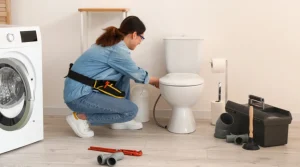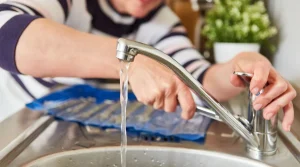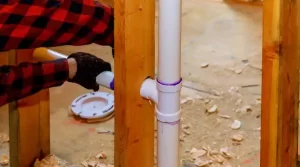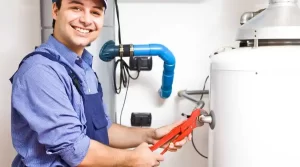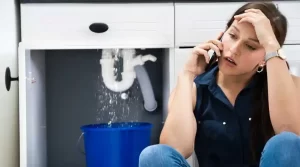Even though forced air heating is more common, most people in the United States still use radiant heating systems to heat their homes.
Some people might think that radiators are old-fashioned, but they provide steady and comfortable heat. Radiators keep rooms warm without drying out the air as warm air heating does. They also last a long time. Even though radiator maintenance is easy, you need to make sure you do it right to keep your system running well.
Ready to find out how to take care of your radiator? Read on to find out what you can do yourself and what you should leave to a professional.
The Way Radiators Work
Hot water is what makes radiant heat work. Water is pumped into a closed system made up of a boiler and pipes that connect to it. The boiler heats the water to more than 87 degrees Celsius. A pump moves the hot water through the pipes and into strategically placed radiators to heat the air around them.
When the water has cooled, it goes back into the boiler. This closed system always reuses water by heating it up again after it has been used. This means that your system works well and uses few resources.
One of the best things about radiant heat is that it makes your home a nice place to be. Forced air systems may be more powerful, but they also dry out the air around you and move dust and particulate around your home. Radiant heat can be more stable as well.
Cast iron, which is very heavy and keeps heat for a long time, is usually used to make older radiators. Steel, which is lighter and less expensive, is used to make radiators that are made more recently.
Radiator Maintenance
Radiator systems are very easy to take care of. All they need is a little basic maintenance each season to keep running for years. Follow these steps to make sure that your closed system is working well:
Let the radiator bleed
Even though a boiler and the pipes that connect to it are a closed system, air can get out of the water over time. The air rises to the top of the radiators because it is lighter than water. This makes air pockets. As part of your regular seasonal maintenance, you should bleed this excess air out of the system.
First, you need to turn off the system and let the water cool down. You could also do this maintenance right before you turn it on for the first time when the weather starts to get cooler.
The top of your radiators should have a small valve. They might need a special key or could be turned by hand. Turn your valve counterclockwise while holding a bowl under the hole below the bleed and listen for a hiss as the air gets out.
When you turn the valve, the system will force air out because it is under pressure. Leave the valve open until water comes out, then turn the valve key in the opposite direction to close it. It’s normal for the water in the lines to look murky or dirty, so don’t worry.
Check the pressure in the boiler
After all the air is out of the system, you should check the boiler pressure. Open the boiler’s service panel and look for a pressure and temperature gauge. Depending on the manufacturer, a cold boiler should read 1.3 bar, while a hot boiler should read 1.5–1.8 bar.
If your boiler’s pressure is lower than these numbers, you may need to add more water to the system. You can open a cold water pipe that goes into your boiler to let more water in. You should do this while keeping a close eye on the pressure gauge. When your gauge reaches 1.3 bar, turn off the cold water valve.
If you accidentally raise the pressure above 1.3 bar, your system will have a pressure relief valve that will let the pressure go down. Be aware that this valve will let water out to keep the system in balance, and put a big bucket under it to catch any water that leaks out. If your gauges are reading too high from the start, you can also use this valve to let water out.
Repairs to the Combustion Chamber
The fire that heats the water comes from a combustion chamber, which is part of your boiler. If the chamber gets too full of debris, it might not work well. It is dangerous to clean out the chamber because it could start a fire, so it is best to have a professional service this part of your system every few years.
Keep warm and safe
With these tips, you’ll have a better idea of what radiator maintenance you can do each year to keep your system running well. With little work, a system that is kept in good shape can last for decades.
Before you do any of these maintenance tasks on your radiator, make sure the water has cooled down and is safe to touch. Even though radiators are very safe, if maintenance is done on a hot boiler, hot water or steam can cause severe burns.
Visit us at BJC Plumbers North Bergen today if you want high-quality and stylish radiators.


